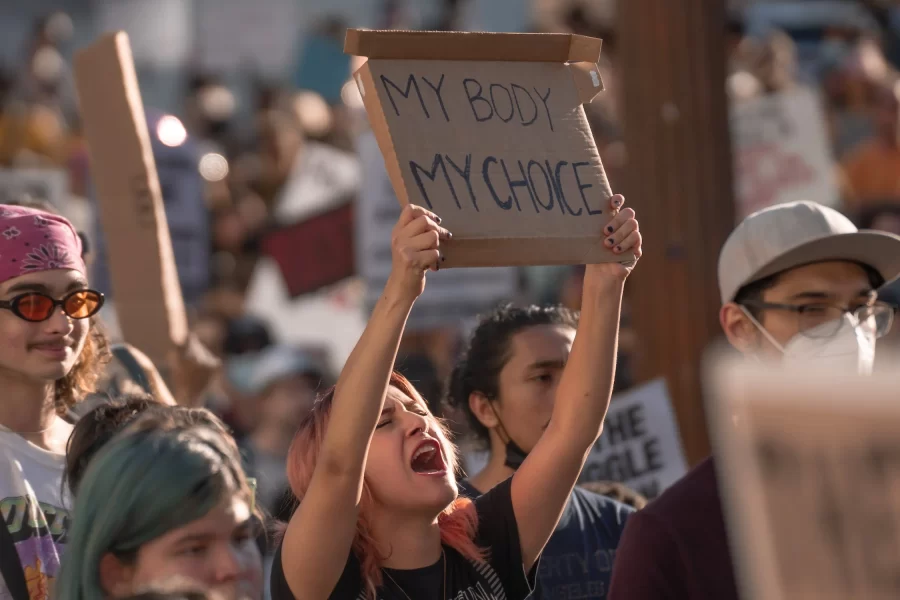Abortion Rights And Privacy Laws
The Implications Of Roe V. Wade Being Overturned
November 7, 2022
Across the nation, women of all creeds and ages swiftly felt the consequences of the Supreme Court’s latest decision which overturned the historic Roe v. Wade case. In thirteen states, “trigger laws” were enacted that would automatically ban abortions during the first and second trimester immediately following the overturn of Roe v. Wade.
In these states and more, laws restricting doctor’s ability to perform lifesaving procedures and women’s ability to receive these procedures have been rolling out by the dozens. However, the real issue at hand involves a right that applies to everyone: privacy.
Privacy In the Constitution
In order to understand the gravity of this recent decision, one must understand the Constitution. Unfortunately, according to a poll by Marquette, 57% of Americans have not read the Constitution, despite it being one of the shortest Constitutions in the world. After one has read the Constitution they would realize that the right to privacy is not mentioned in the Constitution or even in the Fourteenth Amendment.
Despite this, the right to privacy is created through implications in amendments as well as decisions by the Supreme Court. In fact, in a Supreme Court decision Griswold v. Connecticut, the Supreme Court acknowledged that the Bill of Rights contained things called “zones of privacy” from the government within the First, Third, Fourth, and Fifth Amendments. However, this means that an individual’s right to privacy is not protected by the Constitution, but rather decided on by the Supreme Court.
Privacy and Roe v. Wade
Now, the decision in Roe v. Wade was not simply allowing women the right to an abortion. In fact, its implications go deeper than that. Jane Roe, the woman in whom this whole case started with, brought forward her case to the Supreme Court by arguing that a Texas law which criminalized abortion violated her right to personal privacy which was outlined by Griswold v. Connecticut. In a 7-2 majority, the Supreme Court decided that the a pregnant woman’s choice on whether or not to have an abortion is inherently protected by her fundamental “right to privacy”.
With Roe v. Wade now overturned, the issue of privacy is brought back up once again. In these trigger states that have already criminalized abortion, a woman’s right to personal privacy is jeopardized. It is entirely possible that state governments will use data from heath apps as well as other features to find out who is pregnant and who is getting an abortion. With this grave decision, American’s right to privacy is now at the hands of the Supreme Court. As President Joe Biden stated in response to the previously leaked opinion, “every other [Supreme Court] decision relating to the notion of privacy is thrown into question.”
What Next?
The effects of this new decision have already affected millions of women in the United States. Women with ectopic pregnancies are not receiving treatment as doctors have to decide between saving their lives or facing a legal battle with their government. In states like Kentucky, anyone who provides or tries to provide an abortion service will be committing a felony. In other states, anyone who tries to provide an abortion can spend at least 10 years in prison.
And while some states, much like our home, New Jersey, have made themselves “safe havens” for women traveling interstate searching for abortions, others are attempting to make interstate travel for abortion illegal as well. While in New Jersey, Governor Phil Murphy has codified the right to an abortion in our state’s constitution, others aren’t so lucky.
Abortion protects women’s lives. Making abortion illegal does not end abortions – it ends safe abortions. And while women are beginning to feel the effects of this detrimental decision, those of you who feel unaffected should remember: the Supreme Court just put your right to privacy in jeopardy.












